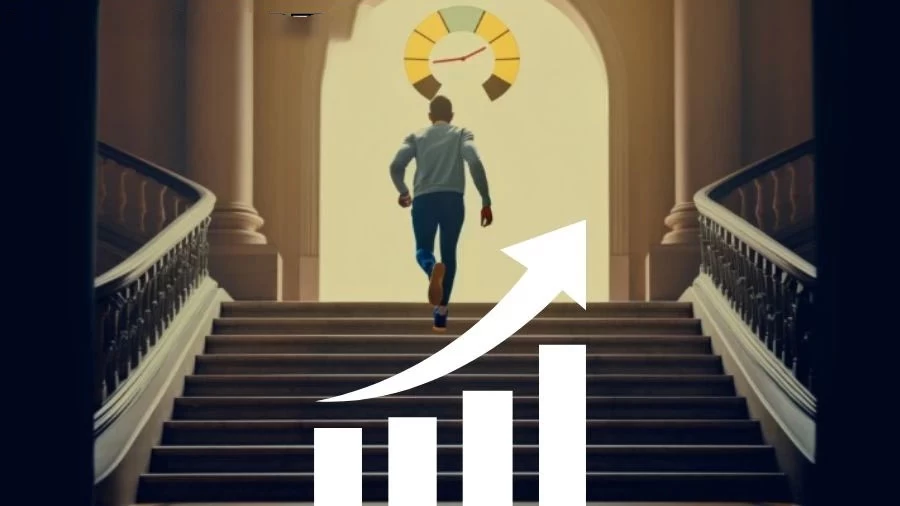
How to Build Credit? How Long Does It Take to Build Credit?
To build credit, open credit accounts like credit cards, maintain low credit utilization, and showcase responsible credit behavior such as making on-time payments.
Updated Dec 01, 2023
On This Page
How to Build Credit?
Commence your credit-building journey by becoming an authorized user, applying for a credit-builder loan, or obtaining a secured credit card. Building credit poses challenges, particularly without a credit history, making it difficult to secure loans, credit cards, or even rental accommodations.
How can you establish a record of responsible repayment when initial credit opportunities are scarce? Numerous Factors helps in a credit history construction. For those targeting a credit card, consider starting with a secured or co-signed card, or explore the option of becoming an authorized user on someone else's card.
Methods to Build Credit
If the objective is to build credit sans a credit card, alternatives like credit-builder loans, secured loans, or co-signed loans offer viable paths. Additionally, leveraging rent, phone, and utility payments can contribute to credit building, with some methods being cost-free while others may involve fees.
1. Acquire a Secured Card
When initiating credit building, consider obtaining the best credit card which suits you—a foundational step where a cash deposit, often starting at $200, secures your credit limit. Treat it like any standard credit card, making purchases, ensuring timely payments, and paying balances in full.
Secured cards are a temporary measure, aiming to elevate credit for eligibility for unsecured cards with better benefits. Opt for low-fee secured cards that report to all major credit bureaus (Equifax, Experian, and TransUnion) to comprehensively build credit history.
2. Become an Authorized User
To expedite credit building, consider becoming an authorized user on a family member's credit card, benefiting from their positive payment history. Opt for a user with a strong record of on-time payments. You don't need to actively use the card, but ensure the card issuer reports authorized user activity to credit bureaus.
Clearly outline card usage terms and potential cost-sharing with the primary cardholder before becoming an authorized user to maintain a collaborative and responsible approach to credit building.
3. Cultivate Positive Credit Habits
Achieving a favorable credit score requires time and a consistent history of on-time payments. To kickstart this journey, establish at least one account open for six months or longer, with a creditor reporting your activity in the past six months, crucial for FICO score generation. Alternatively, a VantageScore, a competitor to FICO, can be generated more swiftly.
In your pursuit to build credit, adopt these positive habits:
Timely Payments
- Ensure on-time payments, meeting at least the minimum requirements. Consistent punctual payments significantly contribute to credit score enhancement
Credit Utilization
- Keep credit card utilization below 30%, as lower utilization positively impacts your score. Strive to pay more than the minimum if possible, fostering further score improvement.
Avoid Frequent Credit Applications
- Multiple credit applications close together can temporarily lower your score. Space applications by approximately six months, particularly for credit cards, and research thoroughly before applying.
Strategic Account Management
- Unless faced with a compelling reason, like high fees or poor service, keep credit card accounts open. Closing an account can adversely affect credit utilization and average account age, key factors in credit score calculations.
4. Earn Credit for Your Bill Payments
Utilize rent-reporting services like Rental Kharma and LevelCredit, converting existing payments into a positive credit history. These innovative platforms help establish on-time payment records, potentially aiding in securing loans or credit cards. Additionally, consider Experian Boost, which incorporates cell phone and utility bills into your Experian credit report, contributing to a comprehensive credit-building strategy, albeit with a limited impact on that specific credit report.
5. Explore Credit-Builder Loans
Discover credit-builder products, like credit-builder loans and secured loans, strategically crafted for enhancing credit. Credit-builder loans, often provided by credit unions and online platforms like Self and SeedFi, act as forced savings programs, with borrowed funds held by the lender until repayment, all while payments are reported to credit bureaus.
Kikoff introduces a specialized $500 credit line designed exclusively for credit-building purposes. Alternatively, consider secured loans from your bank or credit union, using your deposit as collateral. Although the interest rate may surpass your account's earnings, it often remains a more economical option for intentional credit building.
MarketsHost welcomes you to explore its vast treasury of financial insights and information, providing you with a comprehensive understanding of the intricate world of Finance.
How Long Does It Take to Build Credit?
Building credit typically involves generating a credit score after six months of reported payment history, as per the FICO scoring model. However, the timeline to establish a good credit score, typically 670 or higher based on FICO, can vary. Even individuals with a limited credit history can achieve high FICO scores by adopting good credit habits, such as making timely payments and maintaining low borrowing amounts.
For those starting from scratch, surpassing the six-month timeframe may be necessary to build a solid credit score. To expedite this process, opening a credit account, like a credit card, is crucial. Subsequently, showcasing responsible credit behavior over time becomes essential for the gradual improvement of your credit score.
What Does "Credit History" Refer to?
"Credit history" refers to a comprehensive record of an individual's past credit-related activities, showcasing their borrowing and repayment behavior. It includes details such as credit accounts, payment history, outstanding balances, and any instances of late payments or defaults.
Building a positive credit history is crucial for establishing creditworthiness, and it plays a pivotal role when lenders assess the risk associated with providing credit to an individual. To build credit, individuals need to create and maintain a favorable credit history by making on-time payments, managing credit responsibly, and demonstrating a reliable financial track record over time.
Why Building Credit is Important for Immigrants?
For immigrants arriving in the U.S., building credit is essential as it opens doors to financial opportunities that are otherwise challenging to access. Unlike credit scores from their home countries, U.S. creditworthiness is determined using different criteria, making it crucial for immigrants to establish a credit history locally.
Without a U.S. credit score, obtaining a mortgage, credit card, or securing a rental becomes challenging, limiting access to crucial financial products Building credit in the U.S. is vital for immigrants to enjoy better interest rates on mortgages, favorable credit card terms, and overall financial flexibility, emphasizing the importance of initiating the process early in their journey
How to Build Credit - FAQs How to Build Credit? - FAQ
1. How long does it take to build credit?
Building credit can take around six months for a credit score to be generated, but achieving a good score may vary based on individual credit habits.
2. What is the role of credit accounts in building credit?
Opening credit accounts, like credit cards, is crucial to building credit as it establishes a credit history and allows for the demonstration of responsible credit behavior.
3. Why is credit history important for immigrants?
Immigrants need to build a U.S. credit history to access financial products, as their credit scores from their home countries do not transfer, impacting their ability to secure mortgages, credit cards, or rentals.
4. How does credit utilization affect credit building?
Keeping credit utilization below 30% on all cards is recommended, as lower utilization positively impacts credit scores during the process of building credit.
5. Can responsible credit behavior expedite credit building?
Yes, showcasing responsible credit behavior, such as making on-time payments and managing credit responsibly, can expedite the process of building a positive credit history.




